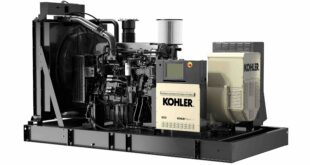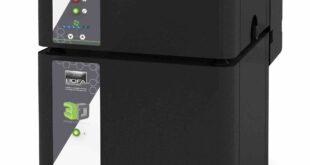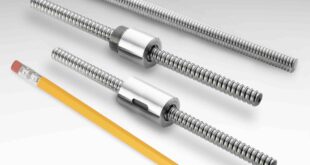Jason Harryman discusses diesel bug, an umbrella term for bacteria and fungi that can contaminate diesel tanks and engines
Every year, more than 30 billion litres of diesel is sold in the UK. While we’d like to think it is sitting there happily in fuel tanks, that might not be the case. Because diesel is an organic fuel, it is the perfect environment for microorganisms to grow — the result is the commonly known phenomenon of ‘diesel bug’.
‘Diesel bug’ is a colloquial term that refers to the bacteria, fungi and yeast that can contaminate diesel tanks. While the term is well known across industries that use diesel engines, there is some misunderstanding about why it happens and how to tackle it.

Diesel fuel provides an ideal environment for microorganisms to grow, including dissolved water for germination, carbon for food, oxygen and sulphur for respiration and trace elements for growth and propagation.
Microorganisms do not grow directly in the fuel, but in the water in the fuel tank from condensation or contamination. Without water, no bacterial growth can occur.
Detect
Creating internal procedures for diesel fuel sampling is an essential first step in detecting whether you there is diesel bug in a fuel tank.
Water finding paste is a simple way to identify whether water is present, to establish whether you have an environment where microorganisms can grow. Other things to check for include; particulates, general colour and appearance, bacterial and fungal checks, sulphur levels and acidity.
A relationship with a company like Finning that provides a fuel sample analysis, will produce condition data and provide early warning for the need to take action.
It is worth noting that sulphur levels are covered by the 2010 Ultra Low Sulphur Diesel legislation, which aimed to reduce sulphur related emissions.
Because sulphur acts as a natural pesticide, reducing sulphur content in the fuel increases the chances for bacterial growth.
Measuring sulphur levels to make sure they are within regulatory limits, but not so low as to encourage bacterial growth, is a good balance to strike.
Cure
If contaminated water is suspected or detected in diesel tanks, maintenance engineers can use fuel polishing to remove them.
Businesses can cycle their fuel using a neutralising procedure that separates water from diesel while capturing contaminated matter.
The fuel is returned to the tank free of bacteria and water, ready for use and kept bacteria-free by a continuous process of filtration system and convection of the diesel supply.
If water is present without signs of contamination, a cost-effective solution is to place water soakers in the tank. Once placed in the fuel through the fill point or inspection chamber, water soaker kits absorb the water.
A more long-term solution is to identify how the water got into your tank and take steps to stop it from happening again.
Prevent
The best approach is to implement preventative measures to avoid diesel bug occurring in the first place. Businesses can protect themselves by purchasing fuel from a reliable supplier and using OEM grade fuel filters.
Similarly, introducing periodic sampling regimes and ensuring that tanks are kept as full as possible can minimise the chances and damage of contamination.
If you are one of the many contributing to the 30 billion litres of diesel consumed each year, it might be time to set up comprehensive measures against diesel bug.
Jason Harryman is UK Sales and Business Development Manager at power systems expert, Finning UK & Ireland.
 Engineer News Network The ultimate online news and information resource for today’s engineer
Engineer News Network The ultimate online news and information resource for today’s engineer





